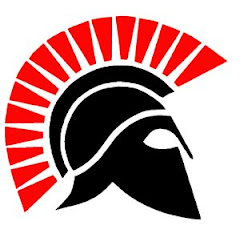SPARTANS,
You're almost done! Unfortunately summer is also winding down. Those of you who have done all of your work and have kept up with assignments and deadlines have done a great job. If you have not done all of your assignments, there's still time to catch up. If you've missed deadlines, you may have a few low/zero scores, but don't let that discourage or deter you.
There's only a bit of work for you to finish up now, and a couple of weeks before school starts again. Here are your final reading response questions for the Summer Learning Packet:
1) Describe the changes that led France to become a more powerful nation in the 16th and 17th century.
2) Compare and contrast the colonization of New France with the English colonization of North America.
3) Evaluate the successes and challenges to the expansion of the French in North America, as they collaborated with some Native Americans and competed with the English and Spanish.
4) Identify the "main characters" in the story of French expansion in North America.
5) Explain the impact of the European wars between 1689 and 1748.
6) Briefly describe the effects of Native American attacks on English settlements in the late-17th and early-18th centuries (include caption information).
7) Examine how a 21 year-old Virginian surveyor and his party could have helped start a world war in 1754.
8) Examine how the Albany Congress revealed beliefs about the relationship among the Anglo-American colonists and the British administrators of the colony and the London government.
9) Describe how the tide of the French and Indian War turned in favor of the British, and the results of that change.
10) Discuss the factors that connect events and attitudes during the French and Indian War to the initiation of the American Revolution.
11) Explain the settlement and movements of French-speaking peoples in North America.
12) Briefly explain Pontiac's actions and the British responses.
13) Discuss how attitudes about westward expansion led to a conflict of ideas between the colonists and British in 1763.
Subscribe to:
Post Comments (Atom)
2.jpg)

No comments:
Post a Comment